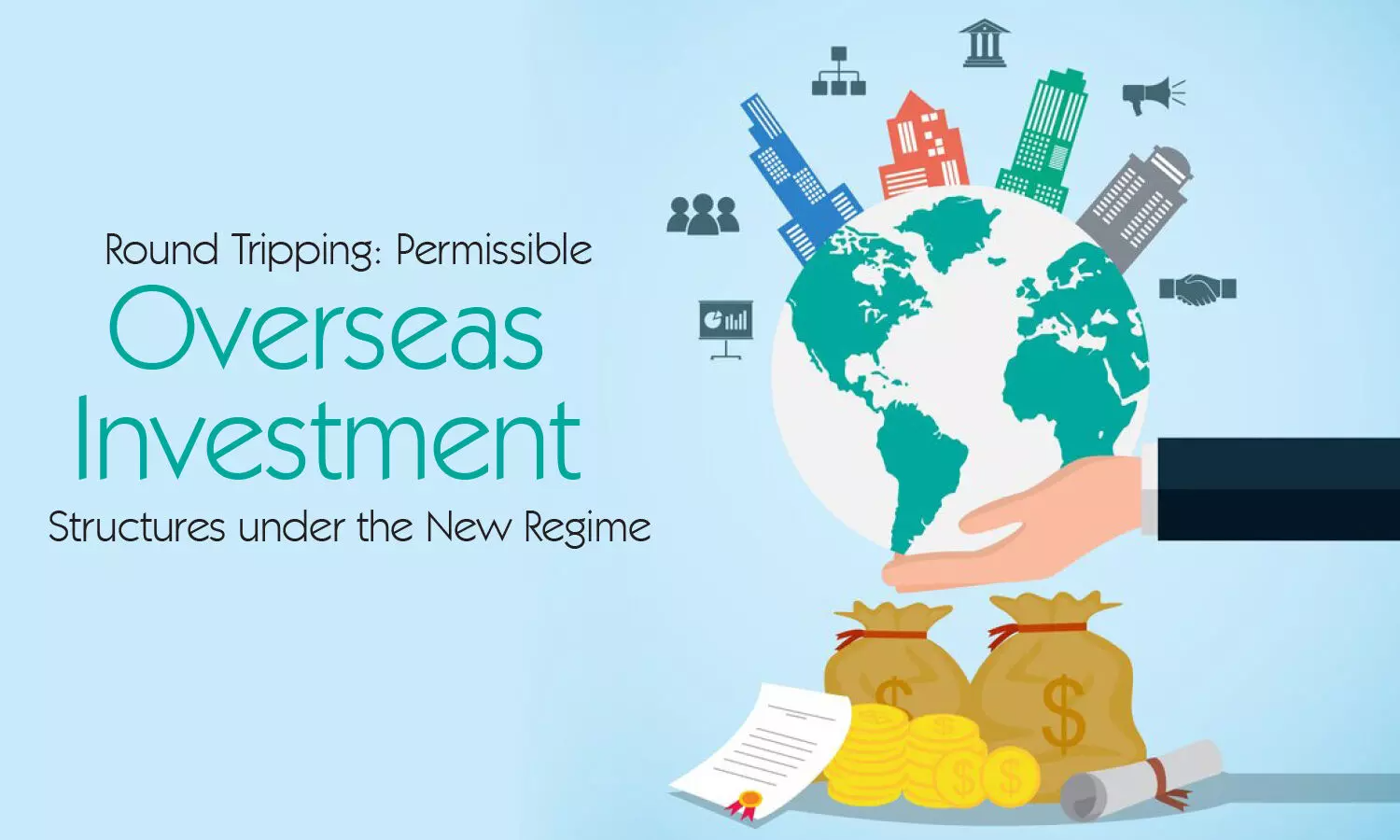Overseas Direct Investment (ODI) from India
Home
Overseas Direct Investment (ODI) from India
As Indian businesses expand, Overseas Direct Investment (ODI) enables global growth through foreign subsidiaries, joint ventures, or acquisitions. At AMG Corporate Avenues LLP, we offer expert-led, end-to-end support for ODI, ensuring full RBI compliance, strategic structuring, and smooth execution of your international business expansion.
- Global expansion with strategic clarity
- Smooth cross-border regulatory coordination
- Tailored ODI structuring for your goals
- Ongoing compliance and reporting support
Expand Beyond Borders with Expert-Guided International Investments

What is Overseas Direct Investment?
Overseas Direct Investment (ODI) is the process through which Indian individuals or entities invest in foreign businesses by acquiring equity or contributing capital. This can be done by establishing a Joint Venture (JV) with a foreign partner or creating a Wholly Owned Subsidiary (WOS) in another country. It also includes purchasing shares in existing international companies or expanding business operations through branch offices or partnerships abroad.
ODI enables Indian businesses to gain global exposure, tap into new markets, access advanced technology, and diversify income sources. These investments are made in compliance with Indian laws and are primarily governed by the Foreign Exchange Management Act (FEMA), 1999, under the regulatory supervision of the Reserve Bank of India (RBI).
Whether the investment is made under the automatic route (without prior RBI approval) or the approval route (requiring prior permission), ODI ensures that Indian businesses can go global in a structured, legal, and growth-oriented way.
Who Can Make ODI from India?
ODI is permitted for a variety of Indian entities under automatic or approval routes, including:
Indian Companies (Private/Public)
Companies incorporated under the Companies Act can invest abroad under the automatic route, up to 400% of their net worth. They can set up JVs, WOSs, or acquire stakes in foreign entities.
Limited Liability Partnerships (LLPs)
LLPs can make ODI in permitted sectors under the automatic route with FEMA compliance. They must ensure proper documentation and partner approval.
Registered Partnership
Firms
These firms require RBI approval before making any overseas investment. Investments must be backed by strong business justification.
Resident Individuals (Under LRS)
Individuals can invest up to USD 250,000 per year under the Liberalised Remittance Scheme. They may buy shares, start ventures, or acquire property abroad in permitted sectors.
Proprietorships
Proprietorships can invest overseas only with prior approval from the RBI. Strict scrutiny applies due to their unincorporated nature.
Why Consider Overseas Direct Investment?
Expanding your business internationally can offer multiple long-term advantages:
Global Market Access
Establish presence in developed and emerging economies to tap into new customer bases, technologies, and talent pools.
Brand Recognition & Growth
Going global enhances brand reputation, credibility, and valuation. A well-planned ODI strategy boosts business potential.
Diversification & Currency Hedge
Investing abroad provides income diversification and acts as a hedge against domestic market fluctuations and currency risks.
Strategic Mergers & Acquisitions
ODI enables businesses to acquire foreign assets, intellectual property, or strategic partnerships aligned with their growth vision.
Tax Efficiency
Depending on the jurisdiction, businesses may benefit from favourable tax regimes, DTAA (Double Taxation Avoidance Agreements), and repatriation structures.

Documents Required for ODI Filing
ODI involves rigorous documentation to comply with RBI and FEMA guidelines. Here’s a general list:
For Indian Entity
- Incorporation Certificate
- PAN Card & GST Certificate
- Audited Financial Statements (past 3 years)
- Board Resolution for Investment Approval Valuation report (in case of acquisition)
For Foreign Entity:
- Certificate of Incorporation or Registration
- Charter documents (MoA/AoA or equivalent)
- Business plan and capital structure details
- Shareholding pattern post-investment
Others:
- Form FC (Foreign Currency transfer form)
- ODI Part I, II, III Forms
- APR (Annual Performance Report for previous ODI, if any)
- UIN (Unique Identification Number) allocation documents
Note: Specific documentation may vary based on route (automatic/approval) and structure of investment.
ODI Process – Step-by-Step Guidance
We simplify your international investment journey with a structured and compliant approach:
Initial Assessment & Eligibility Check
Structuring the
Investment
Documentation & RBI Compliance
UIN Generation & Approval (if required)
Foreign Entity Incorporation Support
Fund Remittance
Post-Investment Compliance
Documents Required for Company Incorporation
Here’s what you’ll need to get started, no matter the type of company you’re registering:
For Directors/Partners/Shareholders:
- PAN Card (for Indian nationals)
- Passport (mandatory for foreign nationals) and valid address proof (notarized/apostilled if required).
- Aadhar Card / Voter ID / Driving License
- Passport-size photograph
- Recent utility bill or bank statement (within the last 60 days)
For Registered Office:
- Utility bill (Electricity/Gas/Water)
- Rent Agreement (if rented premises)
- No Objection Certificate (NOC) from the property owner
Note: Minimum requirements vary. Pvt Ltd needs 2 directors/shareholders, LLP needs 2 partners, and OPC requires only one person. At least one director or partner must be an Indian resident to satisfy legal requirements. Foreign investors may require additional documentation depending on the RBI/FEMA guidelines. Our experts will assist you.
Documents Required for Company Incorporation
Here’s what you’ll need to get started, no matter the type of company you’re registering:
For Directors/Partners/Shareholders:
- PAN Card (for Indian nationals)
- Passport (mandatory for foreign nationals) and valid address proof (notarized/apostilled if required).
- Aadhar Card / Voter ID / Driving License
- Passport-size photograph
- Recent utility bill or bank statement (within the last 60 days)
For Registered Office:
- Utility bill (Electricity/Gas/Water)
- Rent Agreement (if rented premises)
- No Objection Certificate (NOC) from the property owner
Note: Minimum requirements vary. Pvt Ltd needs 2 directors/shareholders, LLP needs 2 partners, and OPC requires only one person. At least one director or partner must be an Indian resident to satisfy legal requirements. Foreign investors may require additional documentation depending on the RBI/FEMA guidelines. Our experts will assist you.
ODI Routes: Automatic vs Approval
| Feature | Automatic Route | Approval Route |
|---|---|---|
| Regulatory Oversight | No prior RBI approval needed | RBI approval mandatory |
| Eligible Entities | Indian companies, LLPs, and resident individuals | All eligible entities with special conditions |
| Investment Limit | Up to 400% of net worth (as per the latest financials) | Above threshold or in sensitive sectors |
| Sector Restrictions | Not in the real estate or banking sectors abroad | Permitted with justification and RBI consent |
| Process Timeline | 10–15 business days | Varies – 4–8 weeks, depending on RBI response |
Who Should Consider Overseas Direct Investment (ODI)?
Overseas Direct Investment empowers Indian businesses and individuals to expand globally through a structured, RBI-compliant route, ideal for growth-focused international ventures. Here’s who should seriously consider leveraging this route:
Indian Startups Expanding Internationally
Startups in tech, SaaS, and e-commerce sectors often aim to enter global markets early to gain visibility, customers, or partnerships. ODI helps them set up international sales offices, development centers, or product support hubs—legally and strategically.
SMEs & Manufacturers Seeking Global Presence
Small and medium-sized enterprises that manufacture goods in India can benefit from ODI by creating production units or distribution tie-ups in foreign countries. This facilitates better market access, cost optimization, and export-readiness.
Established Businesses Eyeing Acquisitions
Well-established Indian companies looking to acquire foreign brands, assets, or distribution networks can use ODI as a vehicle for direct investments abroad, expanding their influence, capabilities, and market share beyond borders.
Professionals & HNIs Diversifying Globally
High-net-worth individuals (HNIs), consultants, and professionals often use ODI to invest in global ventures, advisory firms, or real estate-linked businesses. This helps build cross-border portfolios and reduce domestic market risk.
Companies Entering Joint Ventures with Foreign Partners
If you’re entering into a technology collaboration, marketing alliance, or equity-sharing venture with an overseas partner, ODI allows you to formalize the partnership through a compliant, structured JV or subsidiary.
Common Challenges in ODI & How We Help You Overcome Them
ODI isn’t just about filing forms—it comes with real-world challenges that can delay or derail global ambitions. At AMG Corporate Avenues LLP, we proactively address:
- Jurisdictional Complexities: Every country has different rules. We help you navigate foreign company law, tax residency, and local incorporation requirements.
- RBI Approval Delays: If your investment falls under the approval route, we prepare bulletproof applications and track progress to avoid unnecessary delays.
- Foreign Exchange Risks: Our experts offer strategies to manage currency fluctuations and ensure fund remittance compliance under FEMA.
- Reporting & Disclosure Errors: Mistakes in Annual Performance Reports (APR) or FC-GPR filings can attract penalties. We ensure accurate and timely submissions.
We turn these challenges into structured solutions, so your cross-border venture stays compliant and successful.

Why Choose AMG Corporate Avenues LLP for ODI?
Expanding globally through ODI is not just compliance – it’s strategy. At AMG Corporate Avenues LLP, we align regulatory precision with a global vision to drive sustainable international growth.
Deep Understanding of International Business Dynamics
We go beyond RBI forms and filings; our team understands the commercial, financial, and strategic nuances of setting up or acquiring businesses abroad.
Jurisdiction-Specific Structuring
We help you choose the right country, entity type, and investment model (JV or WOS), factoring in tax treaties, repatriation flexibility, and ease of doing business.
Strategic ODI Planning for Long-Term Growth
Whether your goal is global branding, access to new markets, or tech acquisition, we align your ODI plan with your future business roadmap, not just compliance.
Complete Control, Without the Complexity
From foreign incorporation assistance to RBI reporting and UIN allocation, we simplify the entire process while you stay in control of decisions.
Collaborative, Not Transactional
You’re not just a client; we become your extended compliance partner, helping you build cross-border structures with clarity, foresight, and agility.
Frequently Asked Questions (FAQs)
Yes, but subject to limits under the Liberalised Remittance Scheme (LRS) and only in permitted business activities.
Yes, under ODI, Indian companies can acquire equity in foreign entities, subject to RBI/FEMA rules.
No, Direct investment in foreign real estate or banking sectors is generally restricted under Indian regulations.
Unique Identification Number (UIN) is allotted by the RBI to each ODI transaction for monitoring and compliance purposes.
Filing of Annual Performance Reports (APRs), reporting changes in shareholding or structure, and submission of share certificates to AD Bank.
